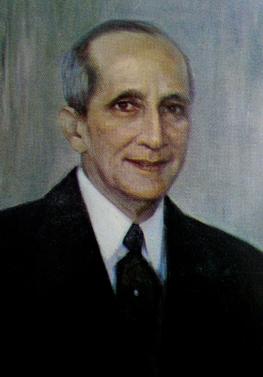Andrés Eloy Blanco facts for kids
Quick facts for kids
Andrés Eloy Blanco
|
|
|---|---|
 |
|
| Minister of Foreign Affairs of Venezuela | |
| In office 15 February 1948 – 24 November 1948 |
|
| President | Rómulo Gallegos |
| Preceded by | Gonzalo Barrios |
| Succeeded by | Luis Emilio Gómez Ruiz |
| Personal details | |
| Born | 6 August 1896 Cumaná, Sucre state |
| Died | 21 May 1955 (aged 57) Mexico City, Mexico |
| Political party | Democratic Action |
| Spouse | Lilina Iturbe |
| Profession | writer, poet, politician |
| Signature | |
Andrés Eloy Blanco Meaño (born August 6, 1896 – died May 21, 1955) was a famous Venezuelan poet and politician. He was part of a group called the Generación del 28. This group was made up of young students who protested against the government in 1928. He also helped start a political party called Acción Democrática. From February 15, 1948, to November 24, 1948, he served as the Minister of Foreign Affairs of Venezuela. This role is like being the country's main diplomat, dealing with other nations.
Biography
Early Life and Education
Andrés Eloy Blanco was born in Cumaná, Sucre state, Venezuela, on August 6, 1896. His family later lived on Margarita Island, which is in Nueva Esparta State. He spent part of his childhood there. Later, he moved to Caracas to study at the Universidad Central de Venezuela.
Poet and Activist
In 1918, Andrés Eloy Blanco won his first award. He won it for a poem called Canto a la Espiga y al Arado. In the same year, he released his first play, El Huerto de la Epopeya. Also in 1918, he was put in jail for protesting against the government.
He won another important prize in 1923. This was at the Juegos Florales (Floral Games) in Santander, Cantabria, Spain. His winning poem was Canto a España (A Song to Spain). He traveled to Spain to accept his award. He stayed there for over a year.
Political Career and Exile
Andrés Eloy Blanco served as the Minister of Foreign Affairs of Venezuela. He held this important job from February 15, 1948, until November 24, 1948.
In 1948, Blanco was forced to leave Venezuela. He went to live in Mexico City. While he was there, a famous Mexican singer named Pedro Infante sang "Angelitos Negros." This song was inspired by Blanco's poem Píntame Angelitos Negros. The poem and song are a strong protest against racism.
Andrés Eloy Blanco passed away in Mexico City, Mexico, on May 21, 1955. Many places in Venezuela are named after him. Several municipalities honor his memory.
See also
 In Spanish: Andrés Eloy Blanco para niños
In Spanish: Andrés Eloy Blanco para niños
 | DeHart Hubbard |
 | Wilma Rudolph |
 | Jesse Owens |
 | Jackie Joyner-Kersee |
 | Major Taylor |

